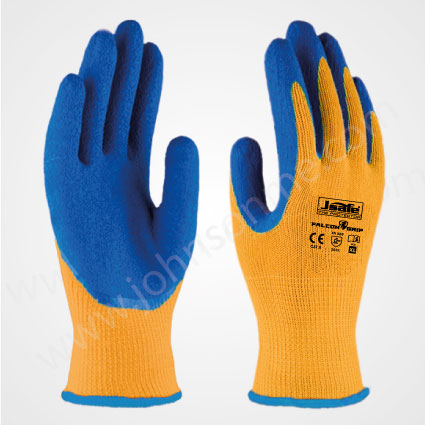Safety gloves are indispensable in various industries, serving crucial roles in protecting workers from hazards and ensuring workplace safety. Here’s why safety gloves are essential:
- Protection Against Physical Hazards: Safety gloves shield hands from cuts, abrasions, punctures, and impacts. In industries such as construction and manufacturing, where sharp objects and heavy materials pose risks, gloves act as a primary defense.
- Chemical Resistance: Certain gloves are designed to resist chemicals, preventing skin contact with corrosive substances that could cause burns or dermatitis. Industries handling acids, solvents, or oils rely heavily on these specialized gloves to safeguard workers' health.
- Heat and Cold Protection: Thermal-resistant gloves protect against extreme temperatures, crucial in environments where exposure to heat or cold could lead to burns or frostbite. From foundries to cold storage facilities, these gloves ensure comfort and prevent injuries.
- Electrical Safety: Electrically insulated gloves are critical for workers in electrical maintenance and utility sectors. They prevent electrical shocks and protect against accidental contact with live wires, ensuring the safety of personnel working with high-voltage equipment.
- Enhanced Grip and Dexterity: Modern safety gloves offer improved grip and dexterity, allowing workers to handle tools and perform intricate tasks with precision. This feature is vital in industries like assembly lines and automotive repair, where both safety and efficiency are paramount.
- Preventing Contamination: In sectors such as healthcare and food processing, gloves prevent cross-contamination between workers and products. They maintain hygiene standards and ensure compliance with health regulations, reducing the risk of spreading infections.
- Comfort and Ergonomics: Ergonomically designed gloves enhance comfort during prolonged use, reducing fatigue and improving productivity. Breathable materials and flexible designs contribute to a better fit, making gloves more comfortable for wearers across various working conditions.
- Personal Protective Equipment (PPE) Compliance: Safety gloves are a fundamental part of PPE protocols mandated by occupational safety guidelines. Compliance ensures that employers prioritize worker safety and minimize the likelihood of workplace accidents and injuries.
- Specialized Applications: From welding gloves that protect against sparks and molten metal to cut-resistant gloves used in glass handling, specialized variants cater to unique industry requirements. These tailored solutions maximize safety in specific hazardous environments.
- Training and Awareness: Proper training in selecting, wearing, and maintaining safety gloves is crucial. It educates workers about the importance of protective gear and ensures they understand how to use gloves effectively to mitigate risks.
In conclusion, safety gloves play a pivotal role in safeguarding workers across diverse industries. Whether protecting against physical injuries, chemical exposure, or electrical hazards, these essential tools not only enhance safety but also promote productivity and compliance with safety regulations. Investing in quality gloves and ensuring their proper use through training are integral steps towards creating a safer workplace environment for all.





Comments